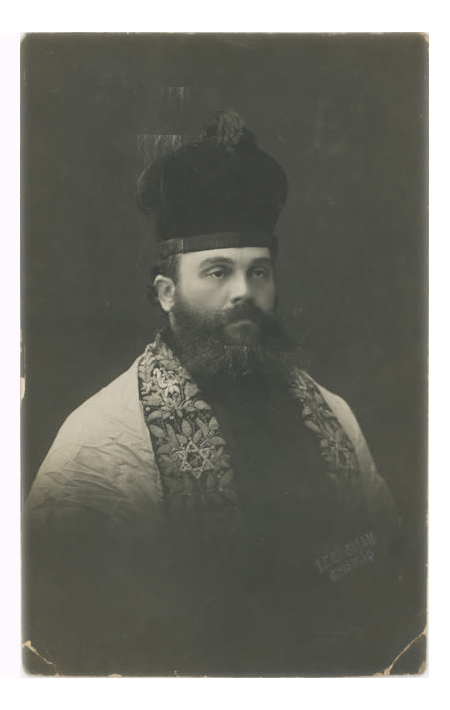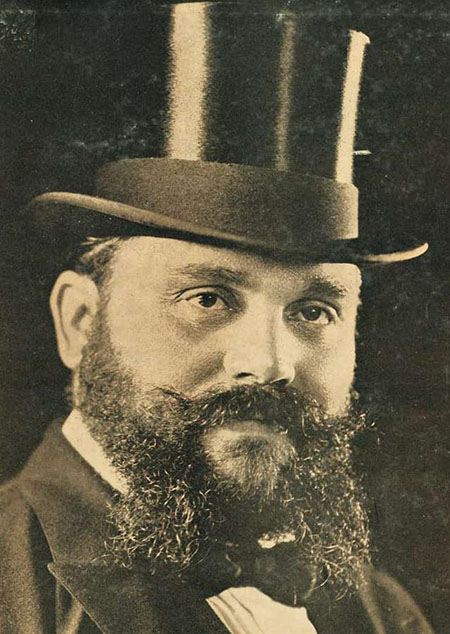Roitman was born on 1 November 1884 in Western Ukraine, but where exactly is somewhat mysterious: various sources give
either "Jusefpol" or "Dorozhinki" or "Drezinke", but none such village exists, at least not nowadays. I'm pretty sure the solution is
the village of Buhove, which was called Juzefpol before 1945, but cannot vouch for it.
He became a cantor apprentice at the age of 12; again, it's not clear where (the town name "Lidvinke" appears only in Roitman
biographies and on no map). In either 1902 or 1904, he got his first post as a cantor, in Kropyvnytskyj (then called Elisavetgrad);
he went on to synagogues in Petrovsk and Bakhmut, and from 1909 to 1912 held a post in Vilnius.
Next, he became cantor at the Grand
Choral Synagogue in St. Petersburg – one of the most important synagogues, and hence one of the most coveted cantorial posts
all over the Russian Empire. He stayed from 1912 to 1917; after the October Revolution, he had the impression his congregation "fell
apart", as he later wrote, and left for Odessa, where he tried to establish a school for Jewish music, which was soon closed down by
the Bolshevik authorities, though. Roitman went to Chişinău, historically always part of the Russian Empire, but annexed
to Romania from 1919 to 1940, so beyond Bolshevik control at the time Roitman lived there.
Finally, Roitman emigrated to the USA; in which year is another fact on which sources don't agree – 1920, 1921 or 1923 (I
suppose the latter to be correct). Anyway, he was to spend the rest of his life in New York City, mostly at the Shaare Zedek Synagogue
in Manhattan, interrupted by concert tours throughout North and South America as well as Europe.
He died in New York City on 4 April 1943, after a long illness.
Roitman was one of the most important cantor-composers, meaning that he almost exclusively sang his own music. Two of his compositions
had already been successful in the USA before he arrived himself – Josef Rosenblatt had sung them on record without quoting the
composer. Roitman protested (a rare instance of copyright awareness, normally an all-but-unknown concept in cantorial music),
Rosenblatt publicly apologized in the American Jewish press, and in the end, the two cantors made friends.
But not only as a composer, also as a cantor, Roitman was a celebrity. His falsetto and his coloratura fluency, above all, are exemplary.

